Welcome to “Protecting Your Flock: A Comprehensive Guide to Vaccination Schedules for Goats and Sheep.” I am thrilled to present this simple and easy-to-read blog designed to ensure the well-being of your cherished animals. We’ve covered you, from recommended vaccines for goats and sheep to the common diseases vaccinations protect them from.
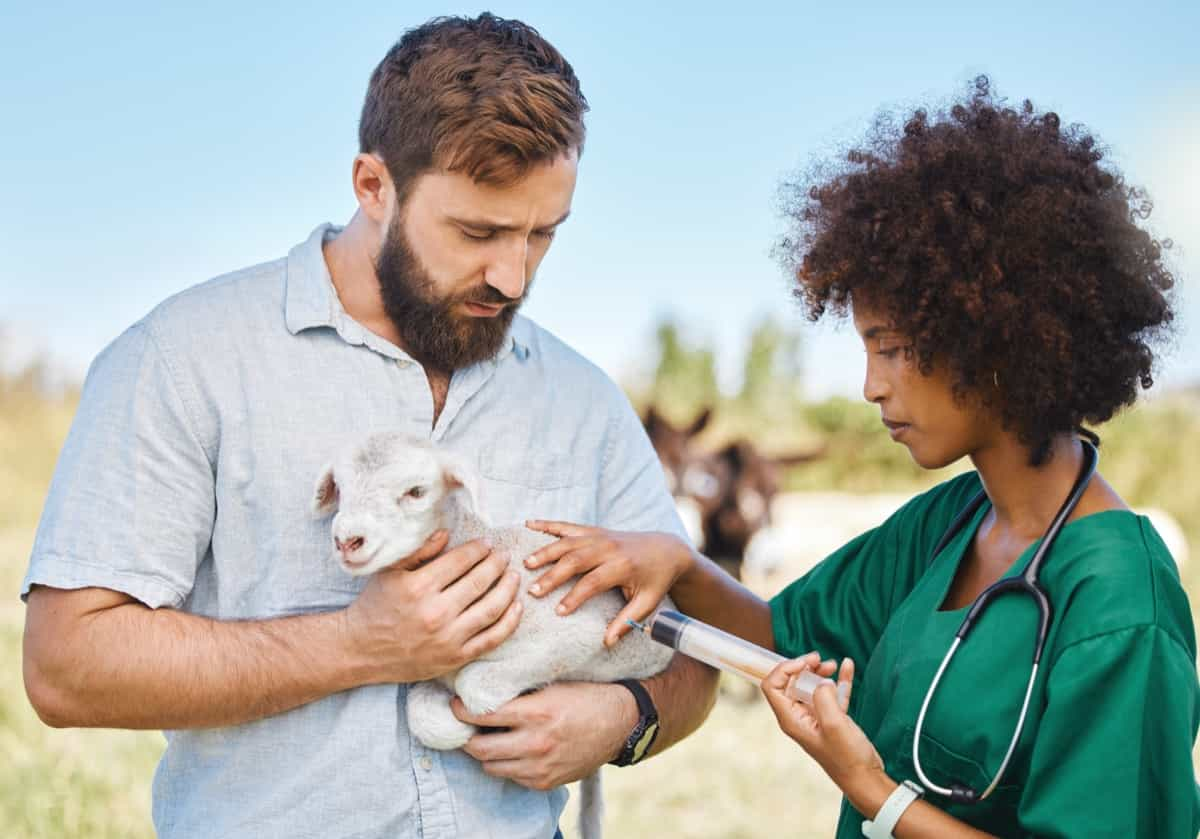
Explore how often to vaccinate, potential side effects, and alternative, natural vaccination methods. Discover the best age to start vaccinating and whether pregnant goats and sheep should receive vaccinations.
Vaccination Schedule for Goats and Sheep
Vaccination Schedule for Goats and Sheep
Vaccination is essential for maintaining the health and well-being of sheep and goats. Core vaccines should be administered annually, including protection against clostridial diseases like Enterotoxemia and Tetanus. Optional vaccines, such as Vibriosis, Caseous Lymphadenitis, and Chlamydiosis, may be considered based on specific disease risks and environmental factors.
Bluetongue vaccine may need to be chosen carefully to match the local virus strain. However, caution is advised with some vaccines, like Contagious Ecthyma, due to potential false-positive results. Remember, all approved vaccines require a primary two-dose series followed by yearly boosters. When introducing new animals, isolate them from the existing herd for at least 15 days and ensure they are properly vaccinated.
Recommended Vaccinations for Goats and Sheep
Stage of Production
- Pregnant Sheep and Goats: 2-4 weeks before lambing or kidding
- Kid Goats: At lambing or kidding
- New Lambs: 30 days after lambing or kidding, with a booster at 45 days
- Ewes and Does: 60-30 days pre-breeding
- Bucks and Rams: 30-60 days pre-breeding
Recommended Vaccines/Health Management
- Clostridium perfringens C and D and Tetanus for pregnant sheep and goats
- Topical external parasite control (permethrin) for pregnant sheep and goats
- Anthelmintic (dewormer) for bucks and rams
- Clostridial 8-way and bacterial disease vaccines for ewes and does
Diseases Covered
Clostridial diseases, Tetanus, Enterotoxemia, Keds and lice in sheep, Ovine ecthyma (sore mouth), Campylobacter fetus-jejuni, Chlamydia psittaci, Caseous lymphadenitis (CL), and Vibriosis.
In case you missed it: Key Rules to Start Boer Goat Farming: Requirements and Basics
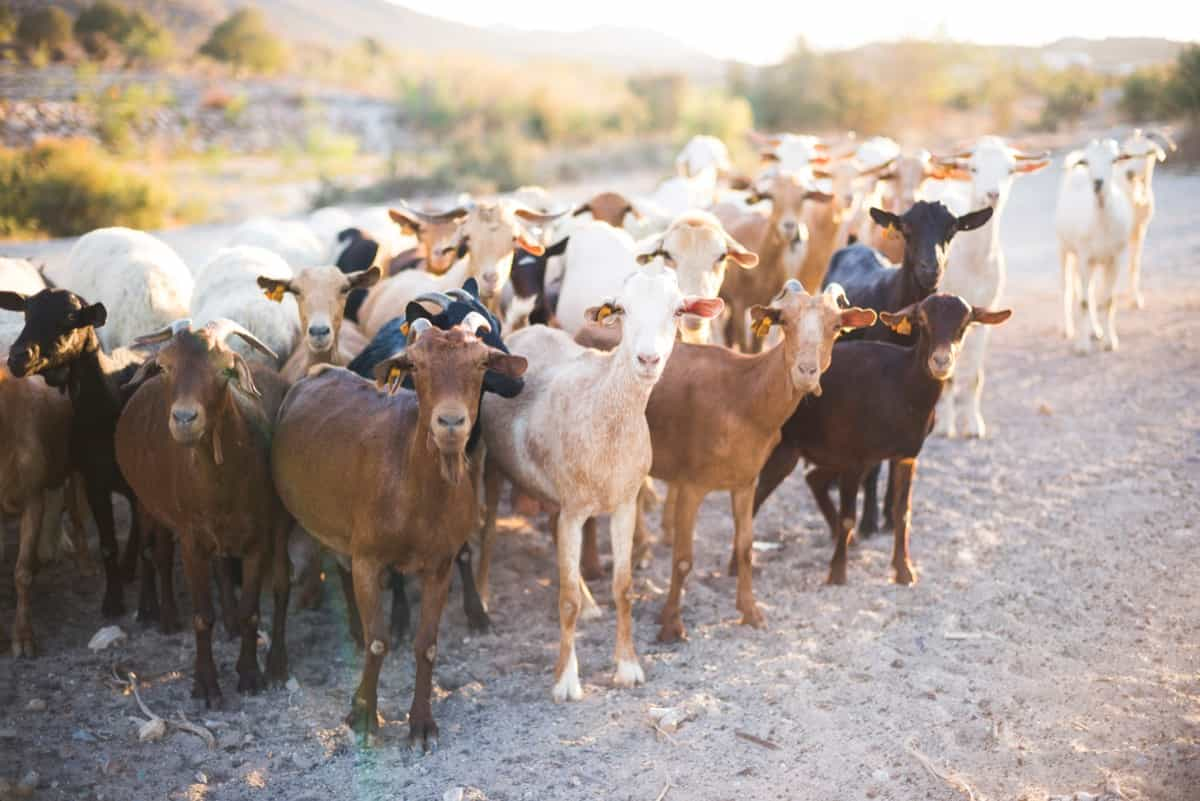
Optional Vaccines
- Vibriosis for pregnant sheep and goats (late-term abortions)
- Chlamydia vaccine for ewes and does (late-term abortions; can be used in both sheep and goats)
When to Vaccinate Goats and Sheep
The timing of vaccinations is critical to ensure maximum protection against diseases. For kids and lambs, starting their initial vaccinations at 6-8 weeks of age is recommended, as maternal immunity begins to wane around this time. Booster shots should be administered 3-4 weeks later to reinforce the immune response. Adult goats and sheep generally require annual boosters to maintain their immunity effectively. However, more frequent vaccinations might be necessary in certain cases with a higher risk of disease exposure.
Goat and Sheep Health Vaccination Guidelines
Developing a comprehensive vaccination plan is essential for maintaining your goat’s and sheep’s health and well-being. Consult with a veterinarian to create a customized vaccination schedule based on your flock’s specific needs and the prevalent diseases in your area. The vaccination plan should take into account the age of the animals, their reproductive status, and their exposure risks. Vaccination guidelines will also consider any historical disease outbreaks in your region and aim to prevent potential future occurrences.
Common Vaccines for Goats and Sheep
Core vaccines are essential and typically include protection against clostridial diseases such as Enterotoxemia (caused by Clostridium perfringens type) and Tetanus (caused by Clostridium tetani). Additionally, respiratory infections like Pneumonia and parasitic diseases like Toxoplasmosis might be part of the core vaccination program. These vaccines prevent your flock’s severe and potentially fatal illnesses.
How Often Should Goats and Sheep Be Vaccinated?
The frequency of vaccinations depends on Different factors. Core vaccines usually require annual boosters to maintain adequate immunity levels. Some vaccines, like those for clostridial diseases, might have a longer duration of protection and can be administered every 3-5 years.
- Lambs and Kids: Two doses of clostridial vaccine, four weeks apart, starting at three months of age.
- Adult Goats and Sheep: One dose of clostridial vaccine annually.
- Ewes: Two doses of clostridial vaccine and one dose of abortion vaccine 6-4 weeks before lambing.
What Vaccines Do Goats and Sheep Need?
Goats and sheep require vaccinations to protect them from preventable diseases. Essential vaccines provide immunity against clostridial infections, respiratory issues, and parasite-related illnesses. Clostridial diseases, including Enterotoxemia and Tetanus, are common and highly dangerous if left untreated.
In case you missed it: Key Rules to Start Jamunapari Goat Farming: Requirements and Business Plan
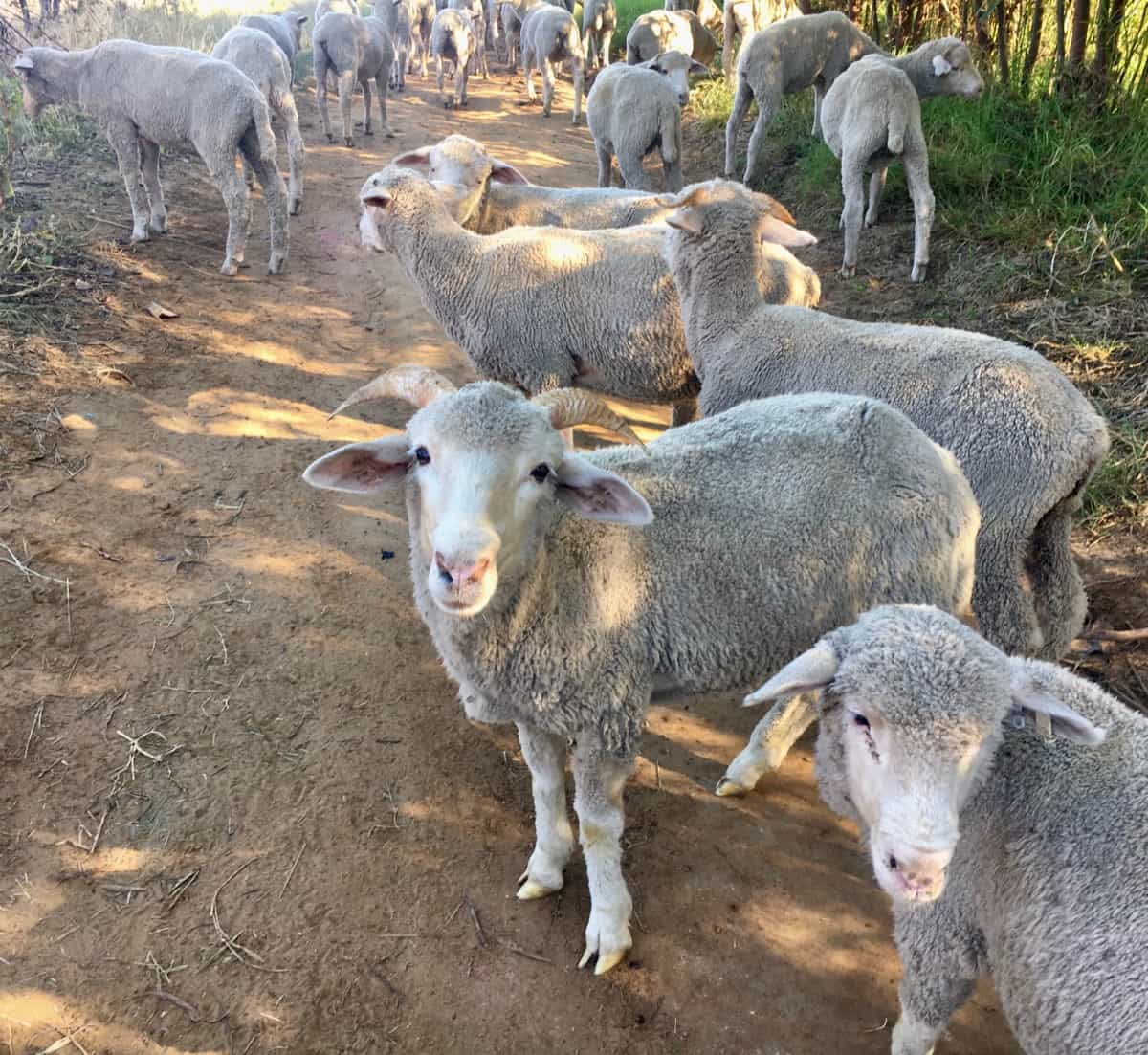
Vaccinating against these diseases is crucial for preventing significant losses in your flock. Respiratory infections, such as Pneumonia, can be detrimental, especially in crowded or poorly ventilated environments. Parasitic diseases, like Toxoplasmosis, can lead to reproductive issues and overall productivity losses.
How Often Should I Vaccinate My Goats and Sheep?
The frequency of vaccination for goats and sheep depends on factors such as vaccine type, age, health, and location. Most animals should be vaccinated annually or every three years, but some may need more frequent vaccinations due to high disease risk.
A general vaccination schedule for lambs and kids is two doses of clostridial vaccine, four weeks apart, starting at three months. Adult goats and sheep should receive one dose annually, while ewes should receive two doses of clostridial vaccine and one dose of abortion vaccine 6-4 weeks before lambing.
Are There Specific Vaccination Schedules for Goats and Sheep?
There are specific vaccination schedules tailored to goats and sheep, taking into account their unique physiological and immunological characteristics. These schedules are designed to provide optimal protection at different stages of life. Proper vaccination protocols consider the risk factors associated with various diseases in your region and aim to prevent outbreaks and minimize the spread of infectious agents.
What Are the Common Diseases That Vaccinations Protect Goats and Sheep From?
- Pregnant Sheep and Goats: 2-4 weeks before lambing or kidding, should be vaccinated against Clostridium perfringens types C and D and Tetanus. They should also be treated with topical external parasite control.
- Kid Goats: At lambing or kidding, they should be treated with topical and drench wormers to prevent internal parasite infestation. They may also be given S.E./vitamin E to help prevent white muscle disease.
- New Lambs: 2 weeks of age. They should have their tails docked and be castrated. If the dam was not vaccinated during gestation, they should be given 300 I.U. of tetanus antitoxin.
- Ewes and Does: 60-30 days pre-breeding, they should be vaccinated against Campylobacter fetus-jejuni bacterin, Chlamydia psittaci ewe vaccine, clostridial 8-way, and caseous lymphadenitis. They may also be vaccinated against Vibriosis.
- Bucks and Rams: 30-60 days pre-breeding, they should be vaccinated against clostridial 8-way and given an anthelmintic (dewormer).
Can I Administer Vaccinations to Goats and Sheep Myself?
While it is possible to administer vaccinations yourself, having a solid understanding of proper vaccine handling and administration techniques is essential. Veterinary training and guidance are invaluable to ensure the vaccines are administered correctly, and the animals receive the appropriate dosage. Proper storage and handling of vaccines are critical to maintaining their efficacy. Working with a veterinarian can also help you select the most appropriate vaccines based on your flock’s specific health needs and exposure risks.
In case you missed it: Key Rules to Start Totapari Goat Farming from Scratch: Requirements and Business Plan
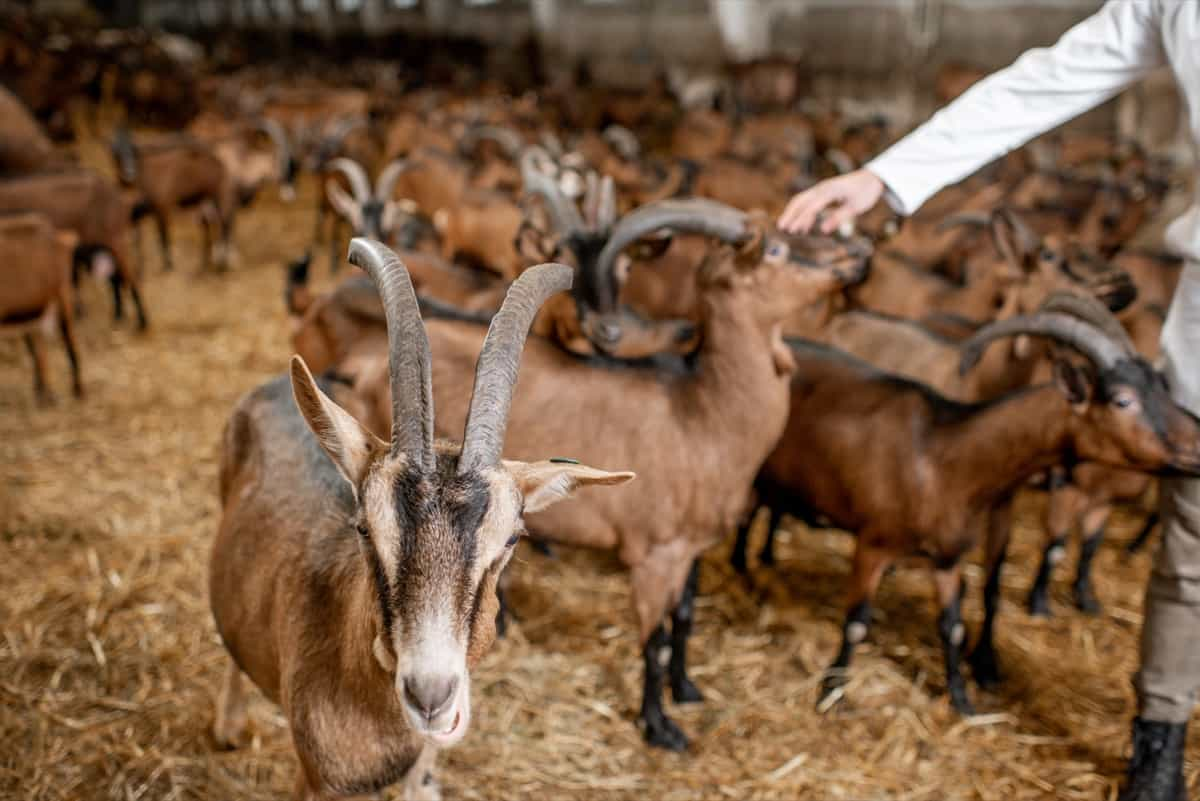
Are There Any Side Effects of Vaccinations on Goats and Sheep?
Vaccinations may cause mild side effects in goats and sheep, similar to other animals. These can include localized swelling at the injection site, mild fever, or lethargy. Such reactions are usually short-lived and resolve without intervention.
However, in rare cases, some animals may experience more severe reactions, such as allergic responses. Immediate veterinary attention is required for any severe adverse reactions. Proper vaccine handling, administration, and post-vaccination monitoring can minimize the risk of adverse effects and ensure your flock’s overall safety and well-being.
What Is the Best Age to Start Vaccinating Goats and Sheep?
The best age to begin vaccinating goats and sheep is during the early weeks of life. Initial vaccinations for kids and lambs should typically start at 6-8 weeks of age. At this stage, maternal immunity starts to wane, making it essential to introduce vaccinations to provide the animals with their immune defense against common diseases. Starting vaccinations early helps ensure a strong and well-prepared immune system as they grow and face various environmental challenges.
Are There Alternative, Natural Methods of Vaccination for Goats and Sheep?
- Colostrum: Colostrum is the first milk a mother goat or sheep produces after giving birth. It is rich in antibodies that can help protect the newborn lamb or kid from disease.
- Probiotics: Probiotics are living bacteria that can help boost the immune system. They can be given to goats and sheep as supplements or by feeding them fermented foods such as yogurt or kefir.
- Herbs: Some herbs, such as garlic, echinacea, and goldenseal, have been shown to have antimicrobial properties. They can be given to goats and sheep as supplements or added to their feed.
Should Pregnant Goats and Sheep Receive Vaccinations?
Pregnant goats and sheep should receive vaccinations to protect them from serious diseases that can cause illness, death, or abortion. There are several important vaccines, including Tetanus, Campylobacter fetus-jejuni bacterin, Clostridium perfringens types C and D, Chlamydia psittaci ewe vaccine, Clostridial 8-way, and caseous lymphadenitis. Vaccination benefits include protecting animals from serious diseases, preventing abortion, improving newborn lambs or kids’ health, and reducing disease spread.
Preventive Vaccinations for Goats and Sheep
The CD-T vaccine is crucial for goats and sheep to protect against enterotoxemia and Tetanus caused by Clostridium perfringens types C and D. Other common vaccines include rabies, pasteurellosis, chlamydiosis, and PPR. The specific vaccines needed depend on the age, location, and exposure to disease. Consult a veterinarian to develop a vaccination schedule for your herd.
In case you missed it: How to Start Profitable Pygmy Goat Farming: Business Plan and Requirements

CD-T is typically given at six weeks of age, with a booster vaccination at 12 weeks. Rabies is required in some areas, and pasteurellosis is given at six weeks of age, with a booster vaccination at 12 weeks. Chlamydiosis is a bacterial infection that can cause abortion in goats and sheep, typically given to pregnant animals 30 days before birth. Adults should be vaccinated every year.
Understanding Sheep and Goat Vaccination Protocols
Core Vaccines: These vaccines are essential for all sheep and goats, regardless of their location or exposure to disease. The core vaccines for sheep and goats include CD-T (Clostridium perfringens types C and D, plus Tetanus), rabies, and pasteurellosis.
Optional Vaccines: These vaccines are not essential for all sheep and goats, but they may be recommended depending on the animal’s location, exposure to disease, and age. Optional vaccines for sheep and goats include chlamydiosis, PPR, and foot-and-mouth disease.
Vaccination Schedule: The vaccination schedule for sheep and goats will vary depending on the specific vaccines used. However, most protocols recommend that core vaccines be given at six weeks, with booster vaccinations at 12 weeks of age and annually after that.
It involves knowing the appropriate timing, route of administration, and dosage of each vaccine. Understanding the potential side effects and how to handle adverse reactions is equally important. Strong knowledge of vaccination protocols empowers farmers to make informed decisions and actively protect their flocks from infectious diseases.
Vaccination Side Effects on Goats and Sheep
Vaccinations can have side effects in goats and sheep but are generally mild and short-lived. Localized swelling at the injection site, mild fever, and temporary discomfort might occur in some animals. These reactions are normal and indicate that the immune system responds to the vaccine.
However, severe reactions are rare but possible. Allergic responses or anaphylaxis require immediate veterinary attention. Follow proper vaccine handling and administration protocols to minimize the risk of adverse effects. Administer vaccines at the recommended age and dose, and monitor the animals closely after vaccination to ensure their well-being.
In case you missed it: From Expenses to Earnings: A Comprehensive Goat Farming Cost and Profitability Analysis
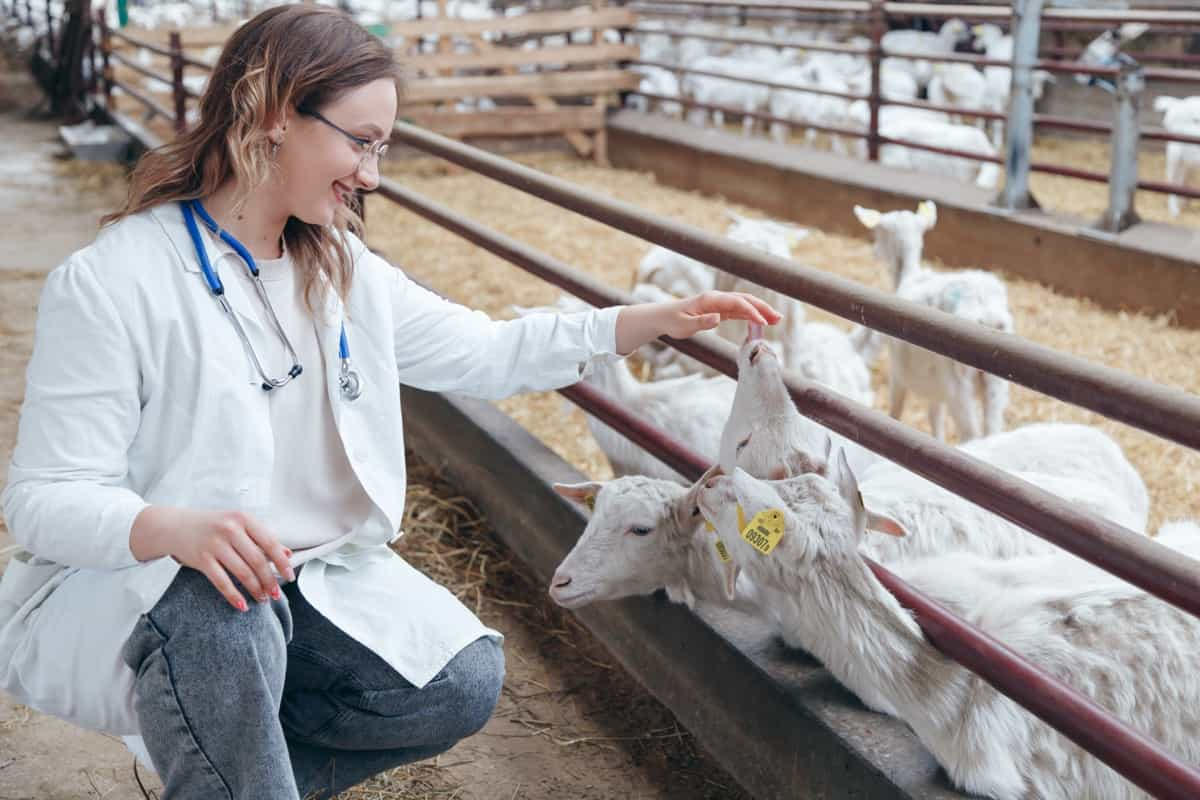
Best Practices for Goat and Sheep Vaccinations
Collaborate with a veterinarian to create a personalized vaccination plan tailored to your flock’s needs and disease risks. Adhere to recommended vaccination schedules for each animal’s age and reproductive status for optimal protection. Proper vaccine handling, accurate dosing, monitoring for adverse reactions, maintaining records, promoting hygiene and biosecurity, using high-quality needles, conducting fecal egg counts, and staying informed about vaccination updates and best practices are essential for maintaining a healthy flock. Regular veterinary visits and continuous education are essential for optimal health and well-being.
Conclusion
Following proper vaccination schedules and guidelines can safeguard your goats and sheep from preventable diseases, ensuring their health, productivity, and overall well-being.
- Types of Pesticides Used in Agriculture: A Beginner’s Guide
- Economical Aquaculture: A Guide to Low-Budget Fish Farming
- 15 Common Planting Errors That Can Doom Your Fruit Trees
- How to Make Houseplants Bushy: Effective Tips and Ideas
- Innovative Strategies for Boosting Coconut Pollination and Yield
- Pollination Strategies for Maximum Pumpkin Yield
- The Complete Guide to Chicken Fattening: Strategies for Maximum Growth
- Natural Solutions for Tulip Problems: 100% Effective Remedies for Leaf and Bulb-Related Issues
- Revolutionizing Citrus Preservation: Towards a Healthier, Greener Future